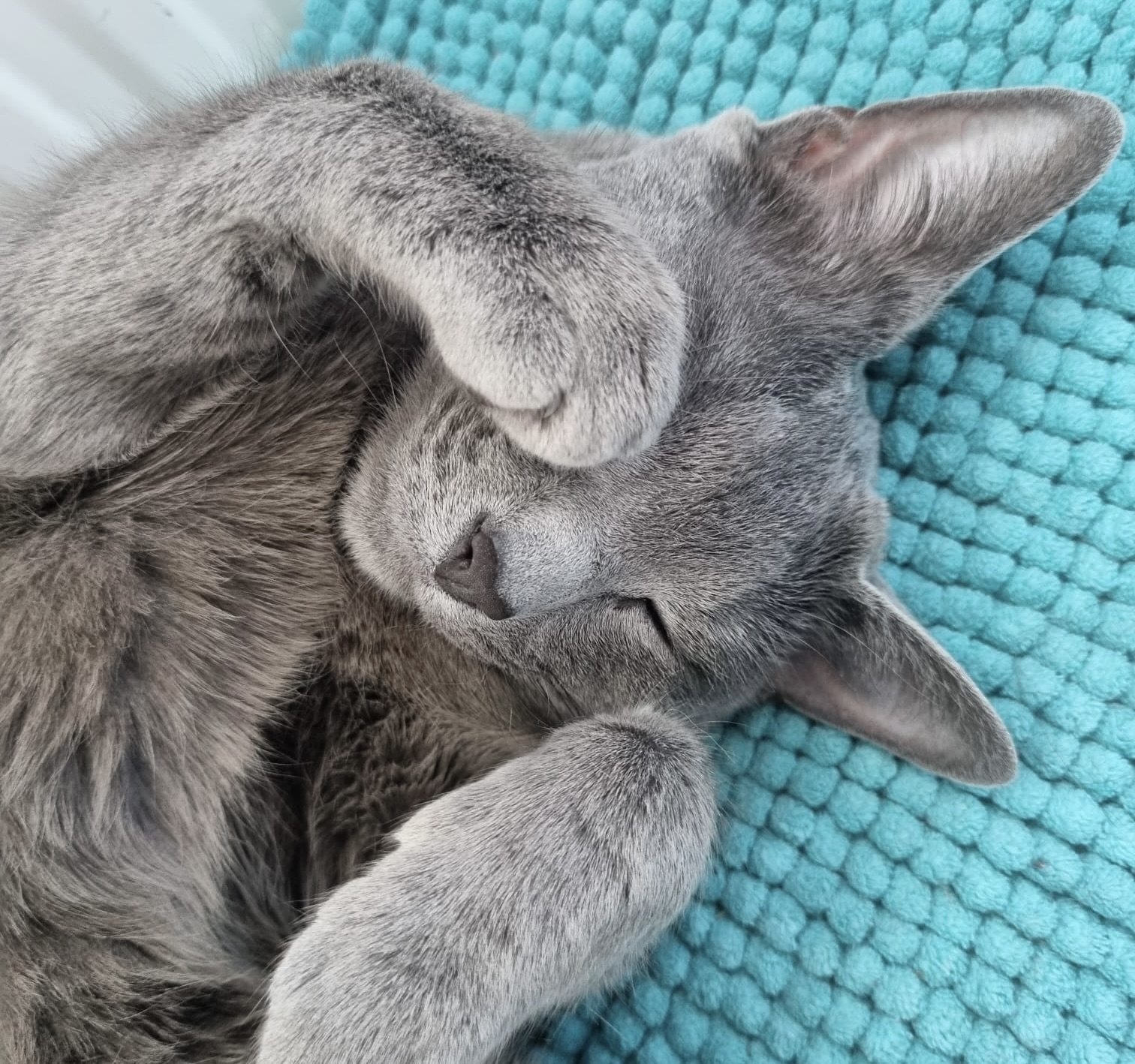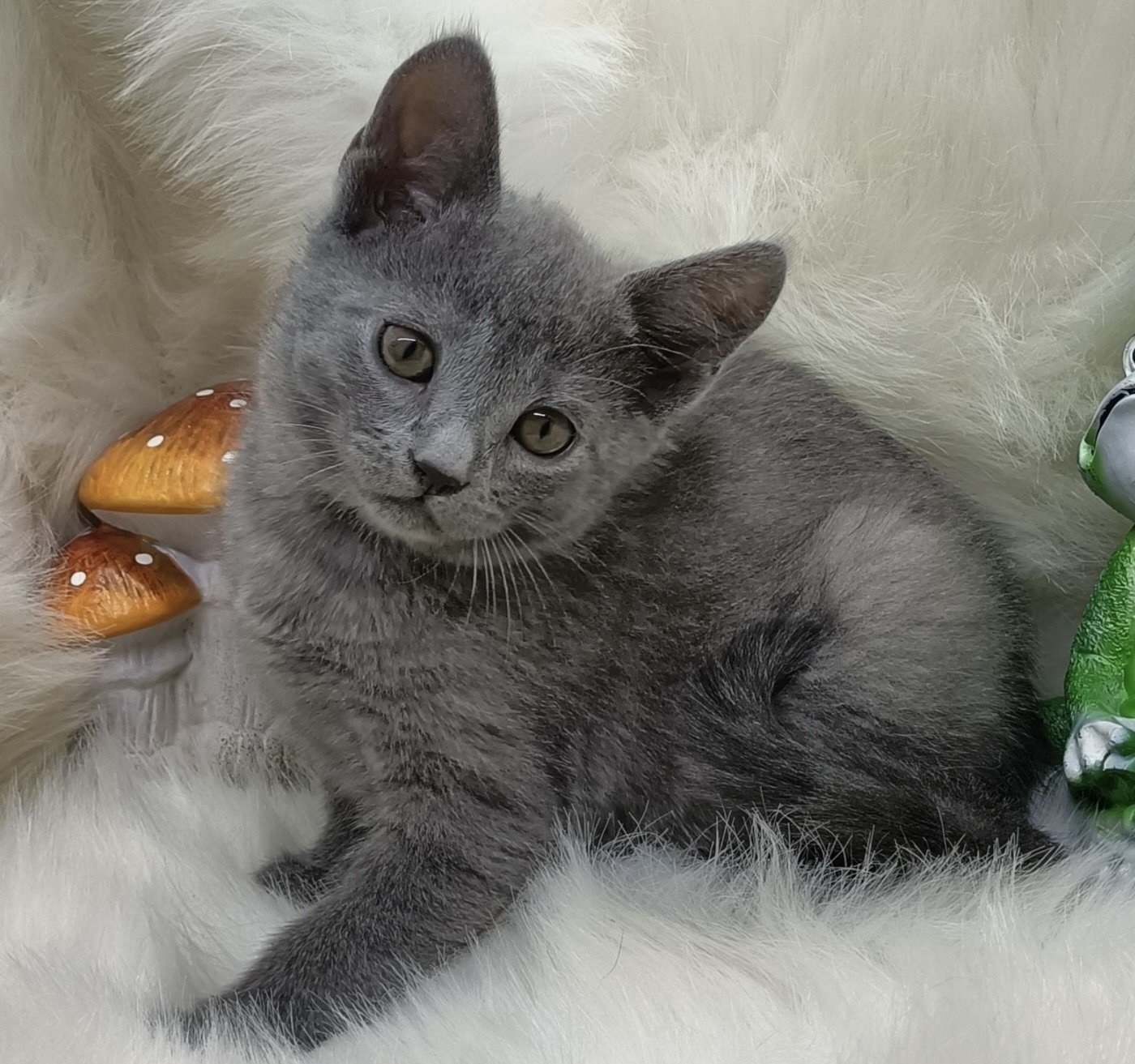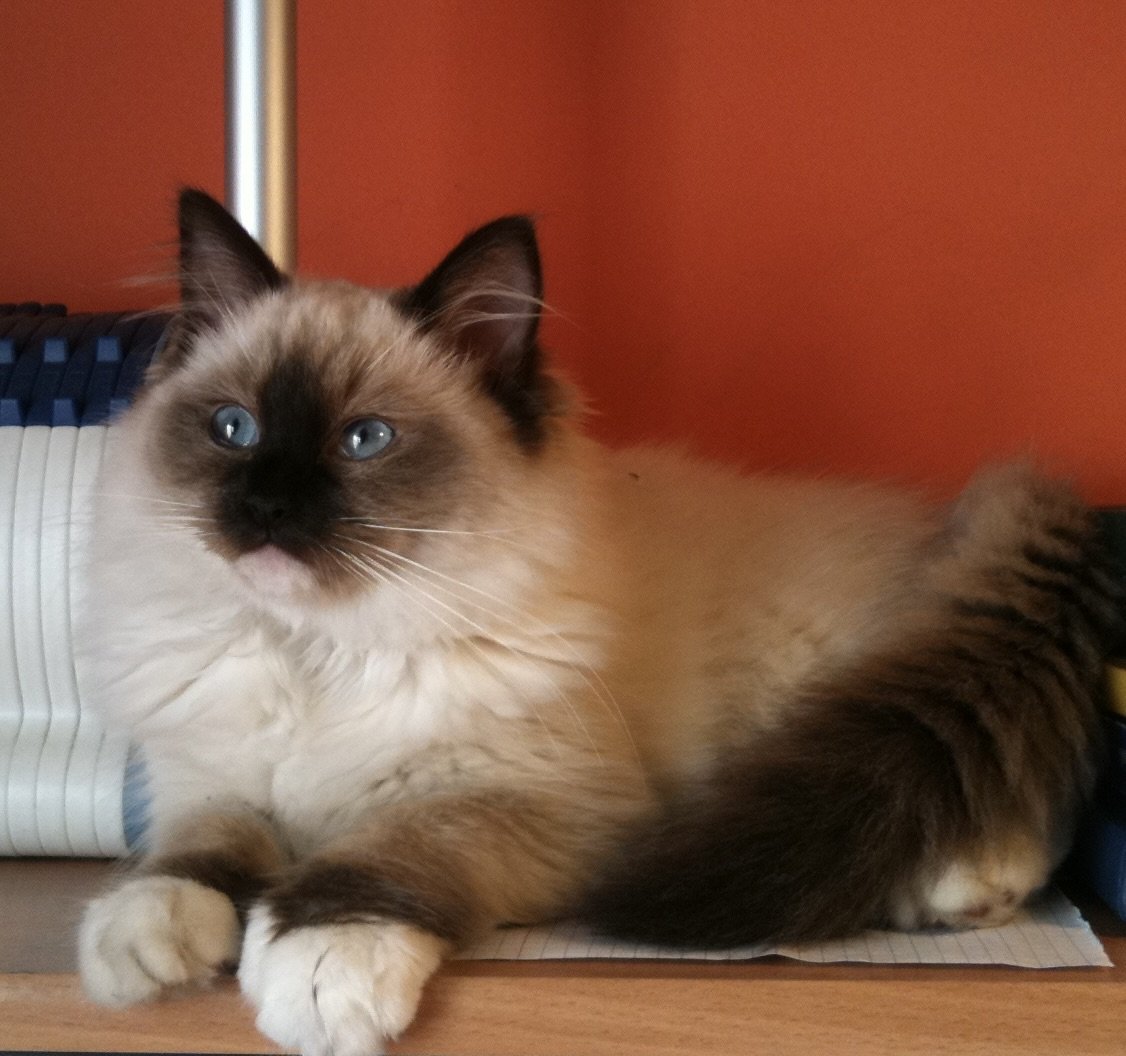
Filters
CLEAR ALLThe Cardigan Welsh Corgi is believed to have existed in Wales for more than 3,000 years and is classed as one of the oldest herding breeds. They are older than the other recognised Corgi breed, the Pembroke. Their name comes from the words “cor gi” which means “dwarf dog”.
The Welsh Corgi was considered to be a single breed until 1934 when they finally split into the Cardigan and the Pembroke. The Cardigan Welsh Corgis belong to the American Kennel Club’s Herding Group and are documented by the United Kennel Club.
The Cardigan Welsh Corgi was originally utilised to move cattle to market and as farm guardians. Today, the Cardigan Welsh Corgi is tough, fun-loving, and affectionate. They enjoy spending time with their families. They are also an energetic playmate for school-age kids.
Cardigan Welsh Corgis are fondly nicknamed Cardigans, Cardis, or CWCs. This dog breed has an alert, attentive, yet approachable expression. They have dense double coats which are slightly harsher in texture compared to the Pembroke Corgi. They come in various coat colours and patterns, including brindle, red, black, and blue, commonly with white markings.
In general terms, the Cardigan Welsh Corgi is fairly laid back and often reserved with strangers. However, with appropriate training, these dogs can become much-loved members of the family.
The Cardigan Welsh Corgi is believed to have existed in Wales for more than 3,000 years and is classed as one of the oldest herding breeds. They are older than the other recognised Corgi breed, the Pembroke. Their name comes from the words “cor gi” which means “dwarf dog”.
The Welsh Corgi was considered to be a single breed until 1934 when they finally split into the Cardigan and the Pembroke. The Cardigan Welsh Corgis belong to the American Kennel Club’s Herding Group and are documented by the United Kennel Club.
The Cardigan Welsh Corgi was originally utilised to move cattle to market and as farm guardians. Today, the Cardigan Welsh Corgi is tough, fun-loving, and affectionate. They enjoy spending time with their families. They are also an energetic playmate for school-age kids.
Cardigan Welsh Corgis are fondly nicknamed Cardigans, Cardis, or CWCs. This dog breed has an alert, attentive, yet approachable expression. They have dense double coats which are slightly harsher in texture compared to the Pembroke Corgi. They come in various coat colours and patterns, including brindle, red, black, and blue, commonly with white markings.
In general terms, the Cardigan Welsh Corgi is fairly laid back and often reserved with strangers. However, with appropriate training, these dogs can become much-loved members of the family.

French Bulldogs are small, robust canines that stand between 28 and 30cm tall. Females are generally smaller than males, weighing anywhere between 7.3 and 10.8kg. Males weigh 9-12.7kg when fully grown.
Both sexes have compact, well-muscled bodies with large, square heads and heavy wrinkling above their short noses. Their large ears are characteristically bat-like and sit high and wide on the head. French Bulldogs also have large round eyes that are almost always dark in colour. Their back legs are longer than their front legs and their wide chest gives them a very stocky appearance.
French Bulldogs boast a short, silky coat that lies very close to the body. These dogs only have a single-layer coat, so they don’t do well in cold temperatures. This is why you will often see French Bulldogs wearing jackets or fleeces in the winter months. Saying that some brindle varieties can sport a double coat.
The only coat colours accepted by the UK Kennel Club are as follows:
French Bulldogs can live 9-12 years if cared for properly and offered a high-quality diet that’s tailored to their needs. However, they are known to suffer from a number of health issues including hip dysplasia, intervertebral disc disease, and cleft palate, due to their unusual bone structure and short legs. As a brachycephalic breed (short-nosed), these dogs can also suffer from breathing problems. Brachycephalic syndrome is common in this breed and is characterised by a narrowing or obstruction of the airways. Dogs with this condition normally snort or snuffle as they breathe. Severe cases may require surgery to widen the nostrils or shorten palates.
French Bulldogs love to play regular games with the family, which is one of the reasons why they have become so popular as pets. When they are not playing, you will usually find a French Bulldog snoozing on the sofa without a care in the world.
These adorable dogs thrive on human contact and form strong bonds with their family members. For this reason, these dogs do not do well when left alone for long periods. So, they are best suited to families where someone is home for most of the day.
French Bulldogs don’t generally bark a lot, but they will alert you if a visitor is approaching your home. So, they make great little watchdogs. However, they can be a bit challenging to train at times. The key to successfully training a French Bulldog is to make training sessions fun with games, activities, and fuss. These dogs are freethinkers, so if they decide they don’t want to do something, there’s nothing you can do to change their minds! They can also be a bit mischievous at times, so they need an owner with a firm but gentle hand, to prevent them from becoming dominant or territorial.
These dogs don’t require a large amount of room or exercise, so they are suitable for apartment living. Up to one hour of exercise per day is all that’s needed for this breed. However, bear in mind that they can have breathing problems so keep walks short. Multiple short walks a day with long rest breaks in between are ideal.
French Bulldogs will do well in a range of home environments. They are particularly popular with city dwellers due to their small size and quiet, calm nature. They love playing with children of all ages and get along well with other animals, including other dogs.
French Bulldogs do not like to be left alone for long periods because they are highly people orientated. So, they are not suitable for people who spend hours out of the house at a time. These dogs need constant attention to be happy, so you need to ensure you have plenty of time to devote to these adorable little canines.


Their stories
We love happy endings. Discover stories of pets who found their beloved family with the help of The Pedigree Paws <3.

Neo
Russian Blue
We had some concerns purchasing a kitten online but our experience with The Pedigree Paws was great. They connected us with Caroline, the Russian Blue breeder and we had many conversations and received multiple pictures and videos. She answered to all our questions.
The Pedigree Paws verified for us all the vaccinations and health checks to make sure our new kitten was 100% healthy.
Thank you for all your help The Pedigree Paws! Highly recommended!

Jack
Miniature Dachshund
One of the reasons I was hesitant to order a puppy from The Pedigree Paws is because I live in Spain. However they connected me with a very good FCI breeder in Barcelona.
He showed me all the health documents of both parents, their pedigree and answer to all my questions. I am so happy they helped me to find a healthy puppy as finding one by myself was very overwhelming. Contacting The Pedigree Paws was the best decision and I highly recommend them to everybody!

Stitch
Chartreux
From the kittens's selection to the arrival of our Chartreux kitten, The Pedigree Paws was there to assist us. We had great experience with them, and they breeder Alexandra from France with whom they connected us and from whom we got our kitten from. They are very prompt in answering our initial and follow-up questions while our kitten was in transit. Very reliable and trustworthy!
Thank you so much for all your help. We are very happy with our new family member. We will definitely recommend it to all our friends.
Athena
Chihuahua
It's been a few months since we decided to find a Chihuahua puppy to join our family, however we had issues finding a good breeder.
We contacted The Pedigree Paws and they connected us with a very unique breeder in Greece. Many videos and pictures were shown, the breeder shared with us the proof of vaccinations, deworming and her 5 generation pedigree. We were fortunate as George, the breeder was able to deliver the puppy to us personally. We are very pleased with our beautiful Athena. Thank you, The Pedigree Paws, for being truthful and transparent.
Thor
Abyssinian
I feel wonderful having help from The Pedigree Paws finding the dream Abyssinian kitten I was looking for. Thor is the absolute dream! The Pedigree Paws team was really patient and responsible in everything. Lovely experience! They replied to every questions, requirements, and information I ask about the kitten.
Fin
Chihuahua
Thank you for finding for me such a beautiful Chihuahua puppy! I love him so much from the minute I saw him. He changed my world.
Kate, from The Pedigree Paws assisted me through the whole process informing me about everything from health checks to arranging a Pet Nanny to transport Fin directly to my door. So thankful that the experience went so well! I love my Fin.

Emi
Ragdoll
I have always wanted a Ragdoll kitten as it was my dream cat breed, but didnt know how to find one as heard a lot about kitten farms and bad breeders. I reached out to The Pedigree Paws and they were very accommodating and transparent from the start. They offered me few kittens from their list of breeders and when I saw Emi I knew she was the one! We went through the kitten's parents DNA testing as for me that was a priority to have a kitten free from genetic disorders. We sealed the deal and now I have the best kitten I could dream of! Thank you very much for all your help
Shima
Russian Blue
I really wanted a Russian Blue kitten, but was very nervous getting one after reading horror stories about scammers on the Internet. I had my first call with Natalia, from The Pedigree Paws and with her help I was able to connect with the breeder, that I knew I could trust. I am very lucky to have now Shima, she is an absolute joy to live with.
Need some help?
Contact us to speak to our friendly advisor, who will gladly help you find your dream pet!



We are registered in England and Wales under registration number 12568840,
and our registered office is at 58-60 Kensington Church Street, W8 4DB London, England.
© 2023 The Pedigree Paws